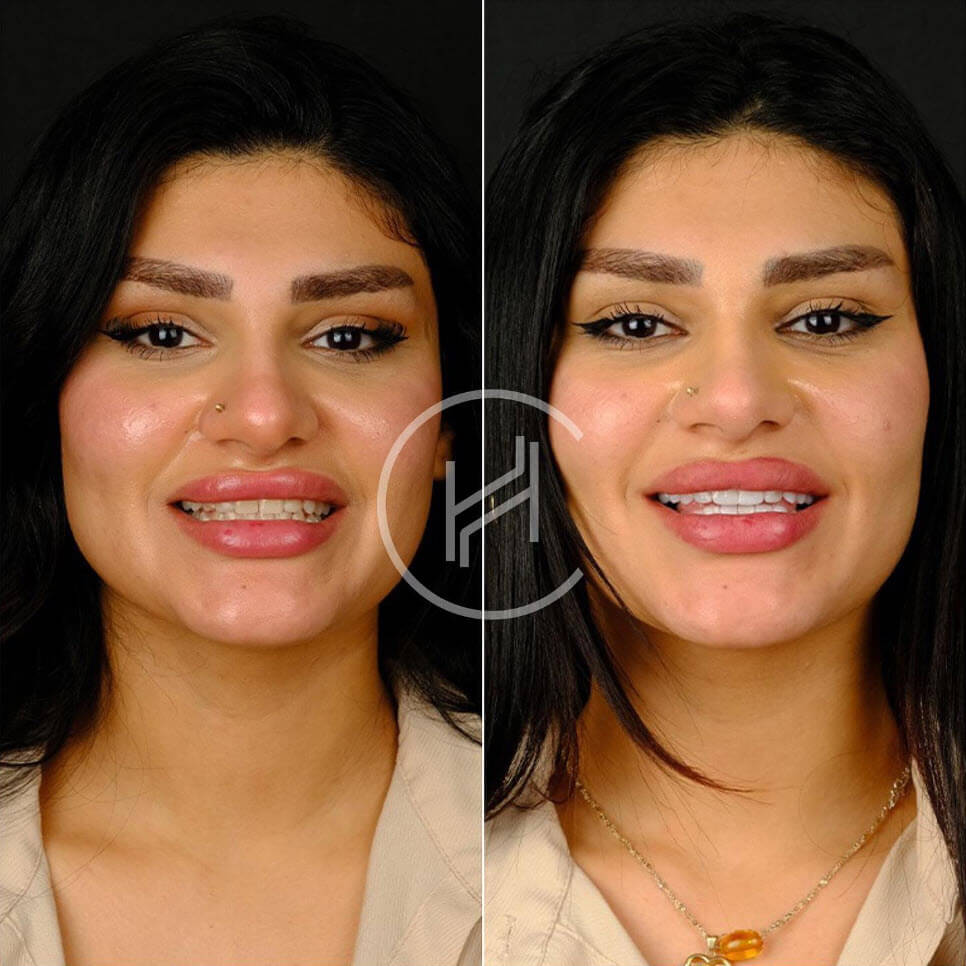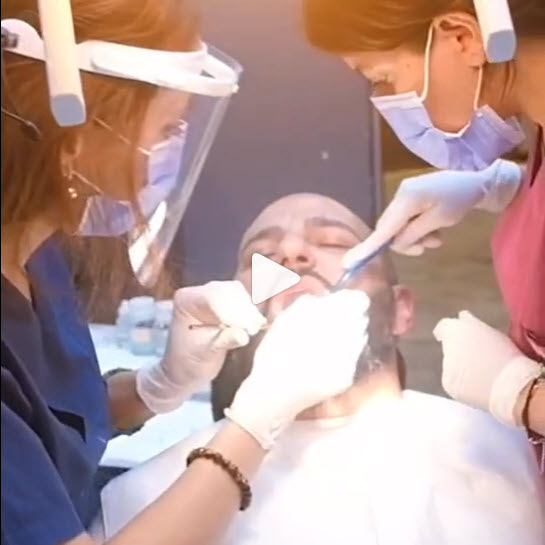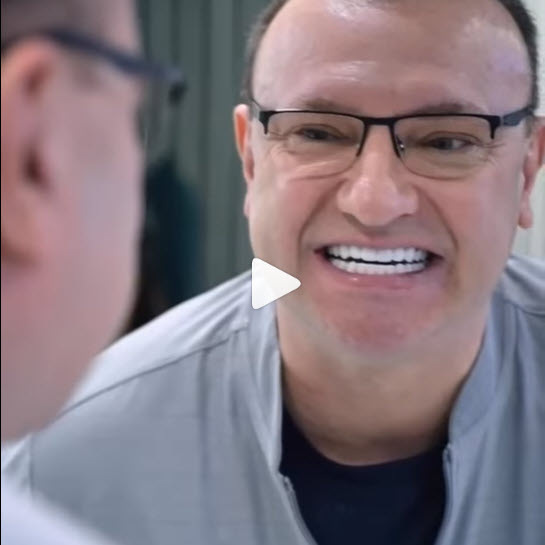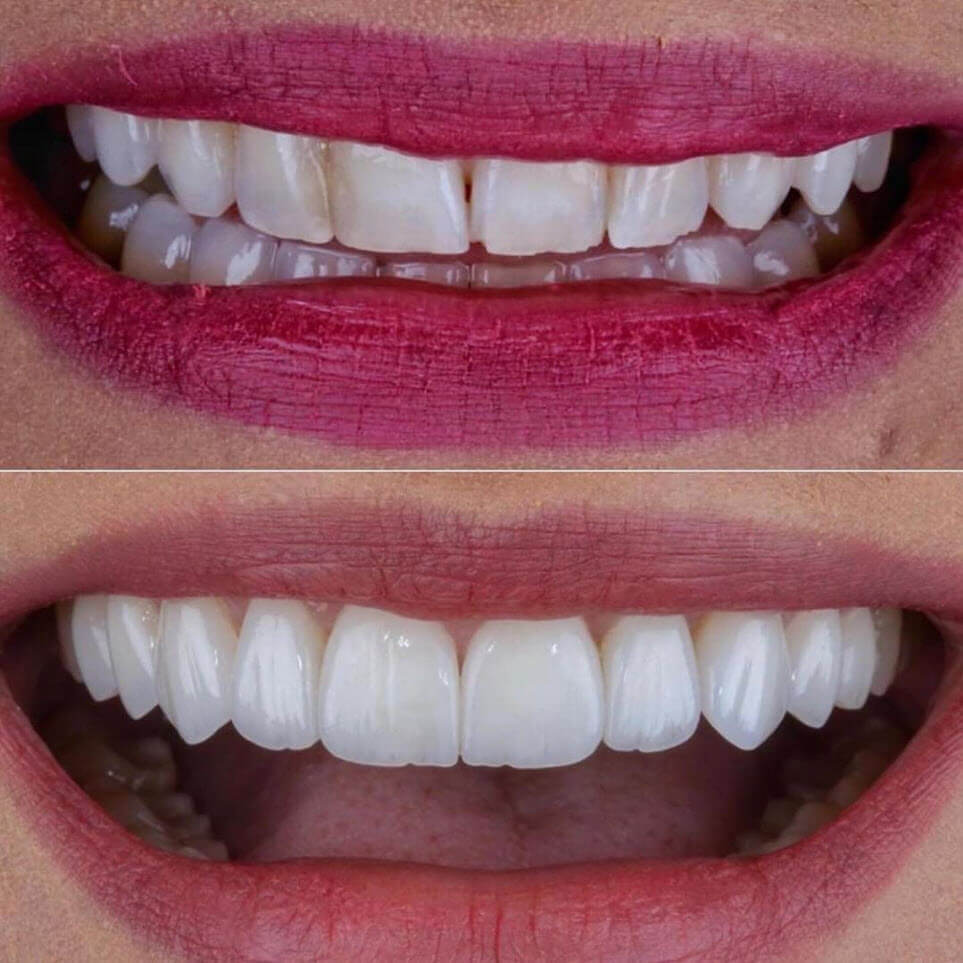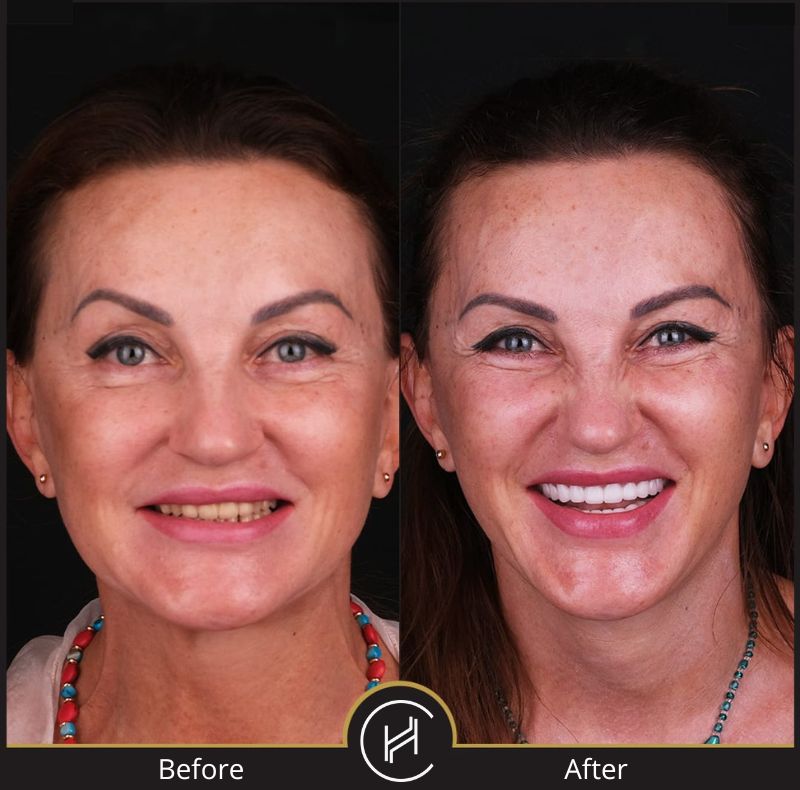
A good smile is one of the most important things in life that can affect your relationship with your own self-esteem as well as those around you and even in your professional life. If you are seeking a makeover for your smile, dental veneers may be the best solution you are looking for.
A dental veneer is a thin shell placed over your teeth to help improve their aesthetic. If you are concerned with either the colour of your teeth or uneven formation, veneers can offer a great solution. Veneers are made out of materials such as composite, porcelain, E.max, and laminate.
Heva Clinic is one of the most reliable clinics in Turkey, offering dental veneers with the highest-quality materials at an affordable price. Here is some information on 5 different dental veneer types to give you an idea about each option.

Top Dentists

Affordable Prices

5-Star Reviews
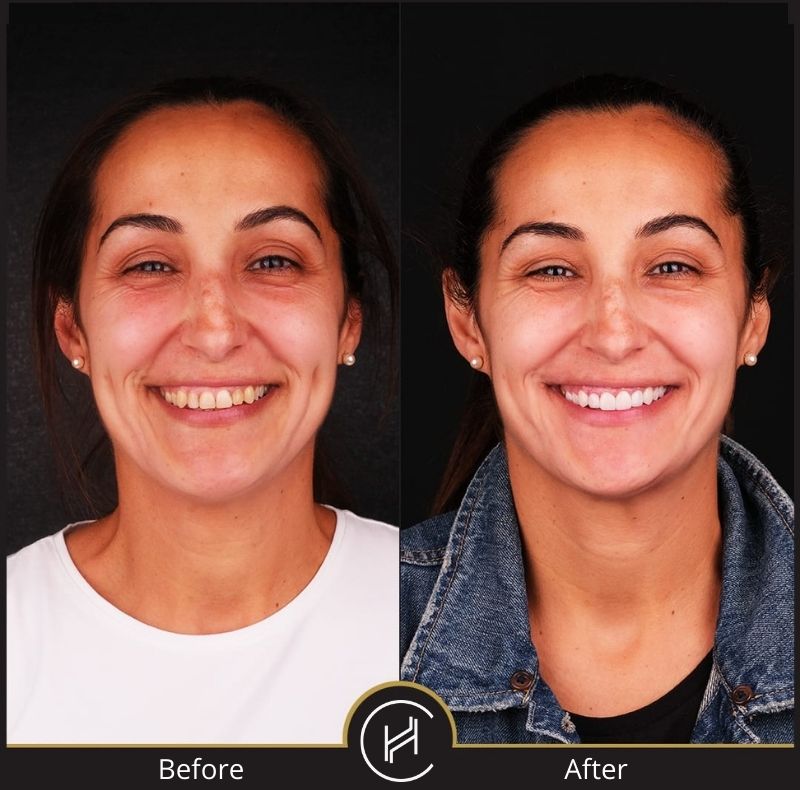
Composite veneers are one of the most commonly used materials for improving the aesthetic of your teeth. These veneers are made up of a composite resin material, the same material used for tooth composite bonding. Two types of composite veneers are available: direct and indirect. There is no difference in terms of the materials used for these two types, but they differ in the way they are applied. For direct composite veneers, the composite resin is directly applied to your teeth while for indirect composite veneers the composite resin is customised to your teeth in a separate process and then applied to your teeth. You will be provided with a set of temporary veneers until the new resin veneers are ready.
Your dentist will prepare your teeth for the application of the new veneers by applying a layer of adhesive. Indirect composite veneers are more durable than direct composite veneers. Thus, this type of composite veneers tend to cost more.
Porcelain veneers are another popular option among people who are looking to get an aesthetic improvement. Similar to indirect composite veneers, porcelain veneers are custom made for your teeth. Your dentist will make an impression of your teeth and prepare your porcelain veneers based on this mold. The preparation of porcelain veneers can take up to two weeks. In the meantime, you will be provided with a set of temporary veneers. Porcelain is a great material to imitate your teeth while showing high durability. Also, porcelain veneers do not stain easily; this is why porcelain veneers are one of the most preferred options.
Emax veneer is a kind of porcelain veneer. This material is made up of lithium disilicate glass-ceramic, which is lighter and allows for thinner veneers. What’s more, Emax veneers offer better durability than porcelain veneers. The best selling point of Emax veneers is their semi-transparent property. Compared to opaque traditional porcelain veneers, Emax veneers offer a more natural look closer to the natural teeth. The application process for Emax veneers is similar to porcelain veneers, where a temporary set of veneers are provided during the preparation process.
Laminate veneers, which are also referred to as dental laminates, are thin shells made up of tooth-coloured materials. Similar to dental veneers, porcelain or composite materials can be used for laminate veneers. Dental laminates are much thinner and less invasive than dental veneers and they can be placed on top of the teeth without changing the shape or removing much of the enamel.
Prepless veneer is a novel type of veneer application that requires minimal or no shaving or drilling. These veneers are almost as thin as contact lenses which makes the application process easier and quicker. Still, they provide the durability of porcelain veneers. This type of veneer is the most gentle and painless way to get an aesthetic look for your teeth. It is even possible to remove the veneers and continue to use your natural teeth after the application since your teeth are left untouched. The enamel and natural look of your teeth are preserved and protected underneath the prepless veneers.
How long does it take to get veneers in Turkey?
If you are thinking about getting veneers in Turkey, you might be wondering how much time you need to spend on the procedure and how long you have to be away from your normal routine. While different clinics might have different timelines, on average it takes 3-5 days to get dental veneers in Turkey. So, you can get quality dental work done without disturbing your schedule for a long amount of time.
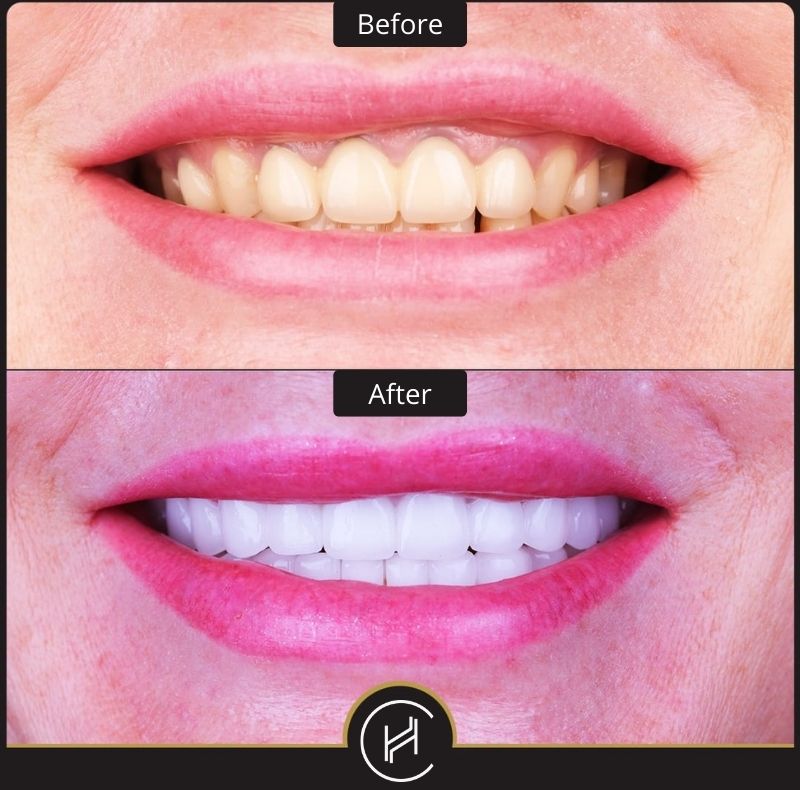
How long do veneers last?
Veneers are long-term solutions to aesthetic dental concerns such as small chips or discolouration. But how long should you expect your dental veneers to last? While this can change depending on the type of veneers you get, the average lifetime of veneers is approximately 10 years. However, you can preserve that perfect smile for a long time; the lifetime of dental veneers can reach up to 20 years if you follow your dentist’s instructions and recommendations.
How much do veneers cost in Turkey?
Turkey is one of the most preferred countries for health tourism because of the reasonable prices and experienced professionals. Dental clinics offer quality and fast results for people who want to get veneers at a much lower price rate than the UK, US, and European countries. Although the price range depends on the type of veneers, it is commonly around £90-150.
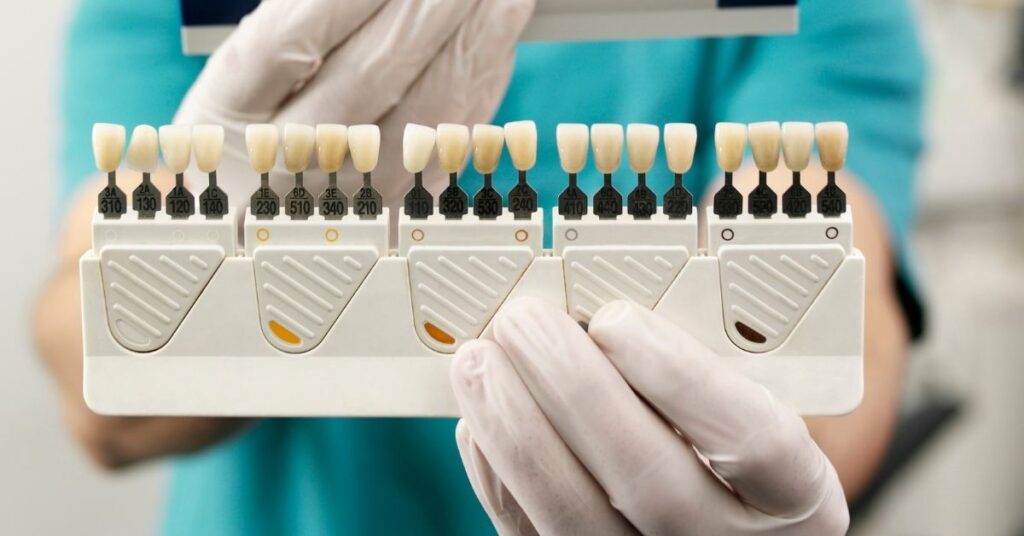
What is the cost of a full set of veneers in Turkey?
If you are planning to get a full set of veneers to improve your smile, Turkey might be one of the best and cheapest options. Experienced dentists and their teams offer great affordable services for people coming from all around the world. The cost of a full set of veneers in Turkey can change between £4000-8000 depending on the material and the type of veneers. Compared to other countries, you can save a considerable amount of money if you decide to get your veneers in Turkey at Heva Clinic.
What does dental veneer package include in Turkey?
Dental veneer packages in Turkey can be customisable and they generally include the services below:
Transportation
5-Star Accommodation
Dentist Consultation
Dental X-Rays
Dental Treatment
Medications
Patient Care Services
Who is a good candidate for veneers?
A good candidate for veneers is required to have a strong tooth enamel so that the veneers can be placed on top. Generally people who have discolored, chipped, worn, misaligned, or irregularly shaped teeth prefer dental veneer treatment to boost their natural smile.
Why are veneers cheaper in Turkey? Is it safe?
You might be wondering if you should trust such a cheap option. The main reason for the cheaper veneers prices in Turkey is the government’s support and positive attitude toward medical tourism. The operational and laboratory costs are lower to be able to offer affordable prices. But this does not mean that the operation and veneers will not be as successful as other countries.
The high-quality medical education in Turkey brings up highly qualified dentists working with attention to detail and care for the patient’s needs and expectations. Also, at Heva Clinic, we provide the highest quality equipment and materials for all types of dental operations including veneers. Of course, not every clinic offers high-quality results which is why it is important to do thorough research before you decide on the right clinic for you.
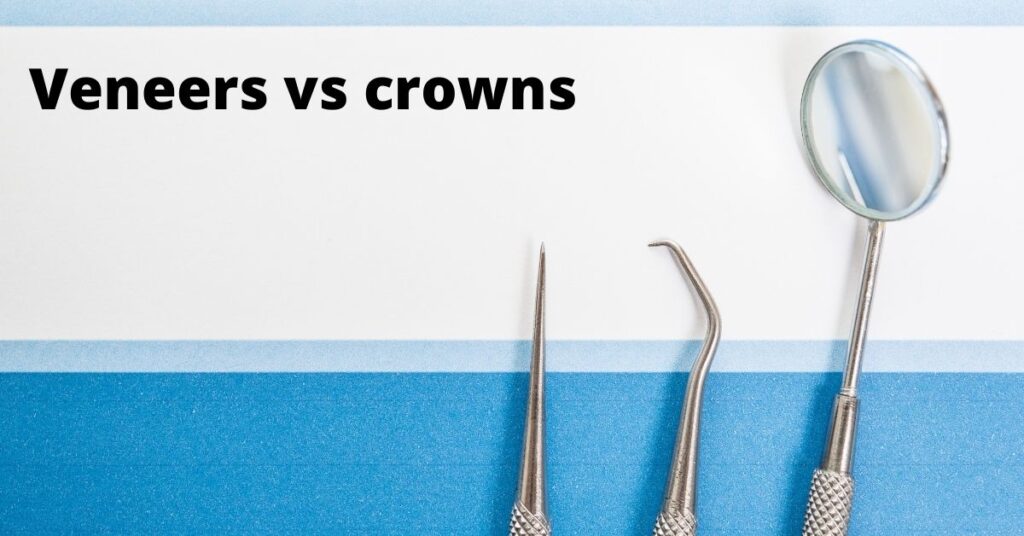
Frequently asked questions
Veneers vs Crowns – Which one is better?
While both veneers and crowns serve similar purposes if you have tooth decay a crown might be a better suited option. However, if you want a less invasive solution, veneers are the way to go.
Why Does Everyone Go to Turkey for Veneers?
How many veneers do I need?
How many veneers you need depends on how many teeth you need to be improved. If you have only one tooth you are unhappy about, only one dental veneer can be applied to give you the smile you want. However, if you need a smile makeover, you might need 4-8 veneers.
Do veneers cover every tooth?
Veneers do not need to cover every tooth. Usually, people opt for getting veneers on front and side teeth as these are the most visible ones when you smile. You can get veneers on teeth that you think need an upgrade.
Can you get veneers on just your front teeth?
Yes, you can get veneers on just your front teeth if you experience chipping or discolouration on your most visible teeth. You can consult with your dental team to understand how many veneers would give you the smile you are looking for.
Does getting veneers in Turkey hurt?
No, getting veneers in Turkey does not hurt. Dental veneer treatment is a non-invasive procedure that does not require the use of anaesthesia. The procedure and the recovery period are usually not painful thanks to the improved dental veneer techniques.
Are veneers distinguishable from natural teeth?
Dental veneers are prepared to be indistinguishable from your natural teeth. Modern veneers have a natural appearance and the colour can be adjusted to suit your existing teeth.

